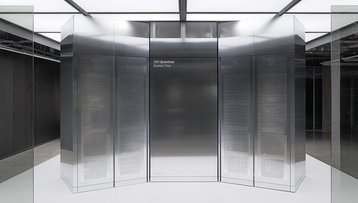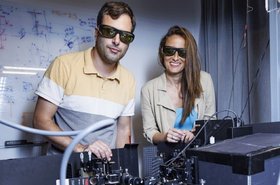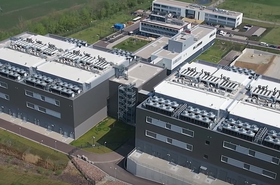IBM unveiled a host of new quantum hardware and software products at its Quantum Summit 2023, including a new quantum computing chip and machine, alongside an extended product roadmap.
The two major launches were IBM Quantum Heron, a 133 fixed-frequency qubit processor, and IBM Quantum System Two, the company’s first modular quantum computer.
The company said Heron “yields a 3-5× improvement in device performance” and a five-fold improvement in error reduction over IBM’s previous flagship 127-qubit Eagle processors.
Three Heron chips will be used to power IBM Quantum System Two; a 22-foot wide, 12-foot high machine that is currently operational at IBM’s New York lab.
Combining cryogenic infrastructure with modular qubit control electronics, IBM Quantum Two will be used by the company to realize parallel circuit executions for quantum-centric supercomputing.
A 1,121 superconducting qubit quantum processor dubbed IBM Condor was also unveiled. Condor provides 50 percent more qubit density, in addition to advances in qubit fabrication and laminate size that will help scale up future projects.
As part of the company’s newly extended ten-year road map, IBM intends Quantum System Two to house future generations of processors, improving the quality of operations and increasing the size and complexity of workloads these processors can handle.
"We are firmly within the era in which quantum computers are being used as a tool to explore new frontiers of science," said Dario Gil, senior vice president and director of research at IBM.
IBM also provided details of new developer tools for quantum computing, including Qiskit Patterns, a mechanism that allows users to create intuitive and repeatable sets of steps to implement quantum computing workflows. In addition, developers will be able to leverage IBM’s generative AI platform wastsonx to automate the development of quantum code for Qiskit.
In other recent quantum news
- The British quantum computer company Orca is providing the Poznan Supercomputing and Networking Center (PSNC) with its first two quantum computers to help accelerate the organization’s research and development across a number of areas, including biology, chemistry, and machine learning.
The two PT-1 quantum photonics systems, which are based on programmable Bosonic Sampling using telecom photon wavelengths, will be installed at PSCN’s data center in Poland. - VTT, the Technical Research Centre of Finland, has opened a five-qubit quantum computer at its data center in Kajaani, Finland. Accessed via the LUMI supercomputer, the machine will allow European companies to develop quantum algorithms and assess their ability to solve computational problems.






